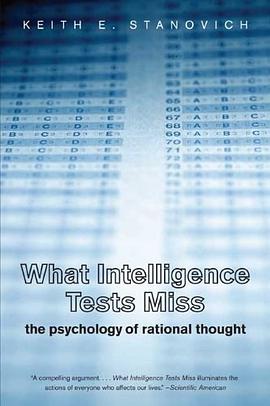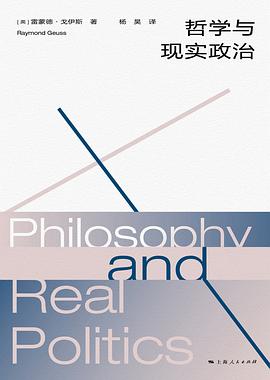What Intelligence Tests Miss
内容简介
Critics of intelligence tests - writers such as Robert Sternberg, Howard Gardner, and Daniel Goleman - have argued in recent years that these tests neglect important qualities such as emotion, empathy, and interpersonal skills. However, such critiques imply that though intelligence tests may miss certain key noncognitive areas, they encompass most of what is important in the cognitive domain. In this book, Keith Stanovich challenges this widely held assumption. Stanovich shows that IQ tests (or their proxies, such as the SAT) are radically incomplete as measures of cognitive functioning. They fail to assess traits that most people associate with 'good thinking', skills such as judgement and decision-making. Such cognitive skills are crucial to real-world behaviour, affecting the way we plan, evaluate critical evidence, judge risks and probabilities, and make effective decisions. IQ tests fail to assess these skills of rational thought, even though they are measurable cognitive processes. Rational thought is just as important as intelligence, Stanovich argues, and it should be valued as highly as the abilities currently measured on intelligence tests.
......(更多)
作者简介
Keith E. Stanovich is Emeritus Professor of Applied Psychology and Human Development at the University of Toronto and former Canada Research Chair of Applied Cognitive Science. He is the author of over 200 scientific articles and seven books. He received his BA degree in psychology from Ohio State University in 1973 and his PhD in psychology from the University of Michigan in 1977.
......(更多)
目录
......(更多)
读书文摘
假设我让你拿起一个铲子,或者从一堆装饰画中选出带有桃心的一张,只要做到上述两件事中的任意一项,就给你100美金作为报酬;另外一个人提出,只要你画出一个桃心,就给你100美元。
更为灾难性的是旨在改变文化环境的“敌对策略(adversative strategy),它会改变文化环境,使得环境不利于自己有竞争性的模因,或者影响它们的宿主去攻击另一种心智程序的宿主。
......(更多)






